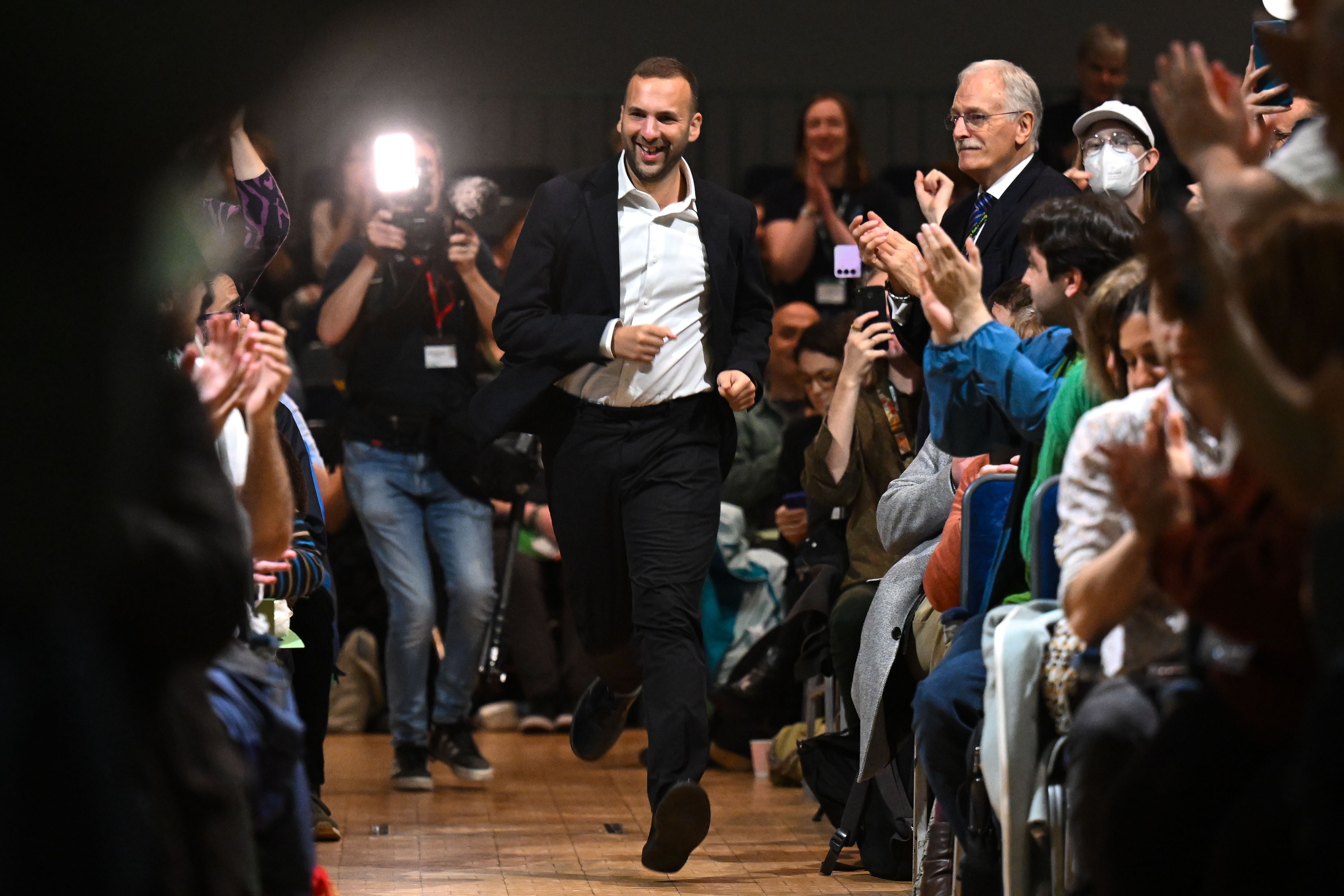Sir Keir Starmer has been warned that Labour is being deserted by a so-called Green wave of left-wing voters who are disillusioned with the party’s shift to the right on welfare, migration and transgender rights.
Analysis of polling by The Times and YouGov revealed that the number of Labour voters at the last election who now intended to vote for the Green Party had more than doubled in ten months.
Overall, 15 per cent of past Labour voters now said they would back the Greens at the next election. This was 50 per cent more than the number of the party’s former voters who said they were switching to Reform.
Senior Labour figures have accused Starmer of failing to grasp the seriousness of the threat and warned that the party risked losing the next election by abandoning its progressive values in order to chase votes on the right.
“We are haemorrhaging far more votes to the left than we are to the right but Downing Street is doing nothing about it,” one party official said. “It is just totally obsessed with Reform.”
Last week, the Greens recorded their best polling result, winning the support of 13 per cent of voters, equivalent to 3.75 million people if turnout remained constant. This was double the number of votes they received at the last election.
The reason for this surge in support was revealed in separate YouGov polling for The Times this week that found an increasing number of Labour’s past voters were sympathetic to the Greens’ platform.
Forty-five per cent said the party represented people such as themselves, while 63 per cent said the party was principled. More Labour voters now trusted the Greens than the party they put into No 10 last year.
On Green policies, Labour voters were broadly supportive. Almost 80 per cent backed nationalising gas and electricity companies, 74 per cent supported a wealth tax and 49 per cent believed domestic flights between British airports should be banned if travelling by train took less than three hours.
Labour’s attempt to reduce welfare payments to people with disabilities, the move to the right on transgender rights and its stance on the war in Gaza also alienated progressive voters.
Part of the Green resurgence can be attributed to the party’s new leader, Zack Polanski, who has cut through to target voters in a way his predecessors failed to do.

Polanski delivers his first conference speech as party leader
FINNBARR WEBSTER/GETTY IMAGES
Despite only having become leader six weeks ago, 56 per cent of Labour voters had heard of him, compared with 30 per cent and 24 per cent who had heard of his predecessors, Carla Denyer and Adrian Ramsey, respectively.
“Starmer should be actually terrified right now about the Green Party,” Polanski said. “Because we’re about to overtake the Tories, and we are coming for him next.”
Under Polanski’s leadership the party’s membership has almost doubled to 126,000, overtaking the Conservatives and the Liberal Democrats.
Just as Nigel Farage tapped into voters on the right who were disillusioned with two-party politics, Polanski was pulling a similar trick on the left by appealing to the same voter base that sustained Corbynism.
Like Jeremy Corbyn and Farage, Polanski has enjoyed a digital wave of success too, gaining 350,000 followers across his social media profiles in six weeks.
More than 12 million people viewed his most recent campaign video on X, in which he walked through a sleepy northern suburb at dawn, talking about income inequality and billionaires.
One of the main issues to win support for the Greens in the past three years has been the war in Gaza. “I think the first year of the genocide, I think it did [win support],” Polanski said. “People were so shocked at what Labour were doing.
“People who were going to leave Labour over that have already done so,” he said. “It’s all fed into a sense that the Labour Party don’t stand for them anymore.”

Green politicians and activists demonstrating on Bournemouth beach during the party conference
FINNBARR WEBSTER/GETTY IMAGES
A turning point for many would have been when Starmer said that rising immigration risked turning Britain into an “island of strangers”, echoing the language of Enoch Powell’s Rivers of Blood speech.
A working paper by university researchers suggested that the speech on its own resulted in a 3.9 percentage point drop in support from former Labour voters, without attracting new backers.
Polanski said the rhetoric “disgusted a lot of people to the point where they knew they had to go find an alternative.”
Luke Tryl, the executive director of the More in Common think tank, said Labour appeared to be underestimating the threat of its progressive, left-leaning voters deserting them for the Greens.
“They seem to have taken the attitude that their left flank has nowhere to go. But the polls and focus groups are clearly showing that’s not true.
“Our research shows that among progressive voters, Labour are now tied with the Greens, having been far ahead of them at the last election.
“And you see the same thing in focus groups. You hear former Labour voters saying that there is no difference between Starmer and the Tories.”
Tryl warned that Labour would be naive to think these voters would naturally return to the party at the next election as, for many, their switch reflected a similar rejection of the status quo that had been seen on the right with the rise of Reform.

Polanski and Ben Jamal, director of the Palestine Solidarity Campaign
FINNBARR WEBSTER/GETTY IMAGES
“They are quite truculent and just don’t think Labour are on their side,” he said.
He warned it could have profound ramifications for the party at the next election.
“Even if they only win a few more seats in places like Bristol the damage will be done if they marginally increase their vote share in constituencies where Labour have a narrow majority against the Tories or Reform.
“That could cost them seats they would otherwise have won.”
The senior Labour figure said the party had “completely dropped the ball” on the threat and had “spectacularly failed” to come up with a strategy to win back former voters who now said they were supporting Polanski’s party.
“Labour has spent an absolute fortune on focus groups and polling to understand why some of their red wall voters are switching to Reform. But they’ve done nothing at all to address the much more serious threat from the left. They’re not even properly thinking about it.
“The view in Downing Street seems to be that they can just ignore these voters and they’ll come running back at the election because of the threat from Farage — at the very best, that is complacent. At worst, it could lose them the election.”
Another Labour source said the party was between a “rock and a hard place” on appealing to the right wing.
“The reality is that there is still a socially conservative majority in the country and unless we deal with the issues like migration that they care about, we will have lost the next election anyway.
“That may mean that we lose a few seats in university towns to the Greens, but that is less bad electorally than failing to shore up our 2024 vote on the right.”
The source added that the risk was that Green voters in marginal Labour–Reform and Conservative seats did not return to the party.
“There was already a core of Green voters in those seats in 2024 that we could not bring round. The big question is whether that vote gets bigger.”

